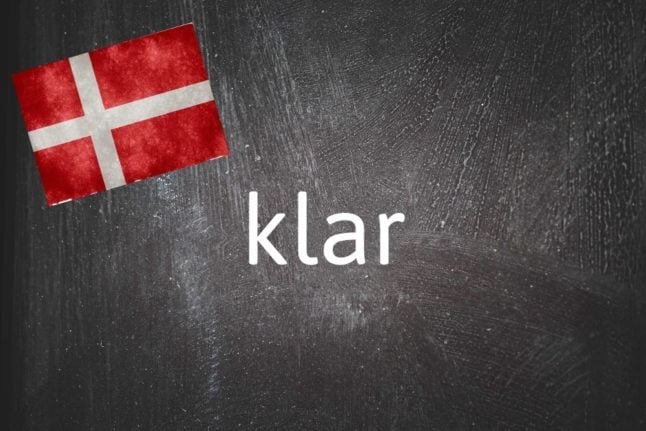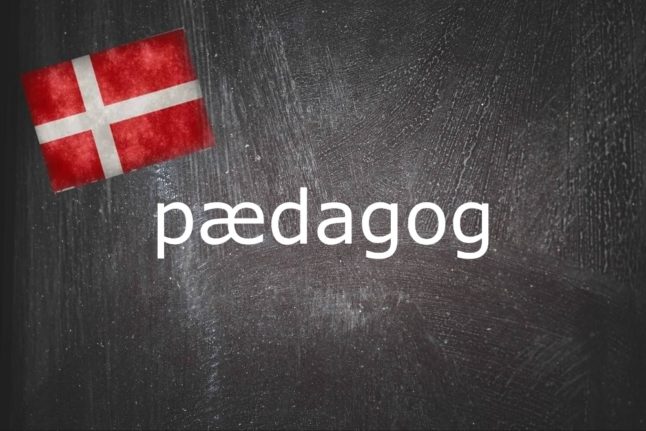What is klar?
Klar, or klart depending on grammatical agreement, has three distinct meanings as adjectives and another one as a verb.
The first of these is similar to the English “clear”, meaning something that is colourless and therefore can be looked through: jeg kan se igennem det klare vand means “I can see through the clear water”. Jeg husker det klart is “I remember it clearly”.
Klar can also mean “ready”, similar to saying something is “all clear” in English, but used more broadly in Danish. For example, the most common way of asking “are you ready?” is er du klar? If you want to start a race, say is klar, parat, start: “Ready, steady, go!”
You might ask somebody er du klar på det? This literally means “are you ready to do it” but the question actually being asked is “are you willing to do it”. An example of this is jeg har brug for hjælp med at flytte. Kunne du være klar på det? (”I need some help moving house. Would you be up for that?”)
The third broad use of klar as an adjective is in the sense of something that is easy to understand or self-explanatory. There might be a klar sammenhang (“clear connection”) between a cause and effect. If you comment that himlen er blå (“the sky is blue”), someone might respond det er klart (“that’s obvious”).
Finally, klar can also be a verb: at klare noget is to overcome or deal with a challenge, task or problem. Jeg klarer opvasken is “I’ll take care of washing the dishes”; det klarede du fint is a complimentary “you did that very well”.
Why do I need to know klar?
As the above shows, there are many ways this word can be used (too many to cover all of the nuances here, in fact). This makes it a good word to know and understand. The different meanings above are all quite common.
However, the third adjective meaning described above can sometimes verge on being a false friend.
You might hear someone begin a sentence with det er klart, at… meaning “it’s clear that…”, followed by a statement. Det er klart at man kan mærke de høje gaspriser can be taken to mean “it’s clear that the (effects of) high gas prices can be felt”.
However, context makes klart closer to “certain” than “clear” in sentences like this. I’d argue that “We are certainly noticing the high gas prices” is a more elegant translation and perhaps a more accurate way to read sentences that begin with det er klart.



 Please whitelist us to continue reading.
Please whitelist us to continue reading.
Member comments